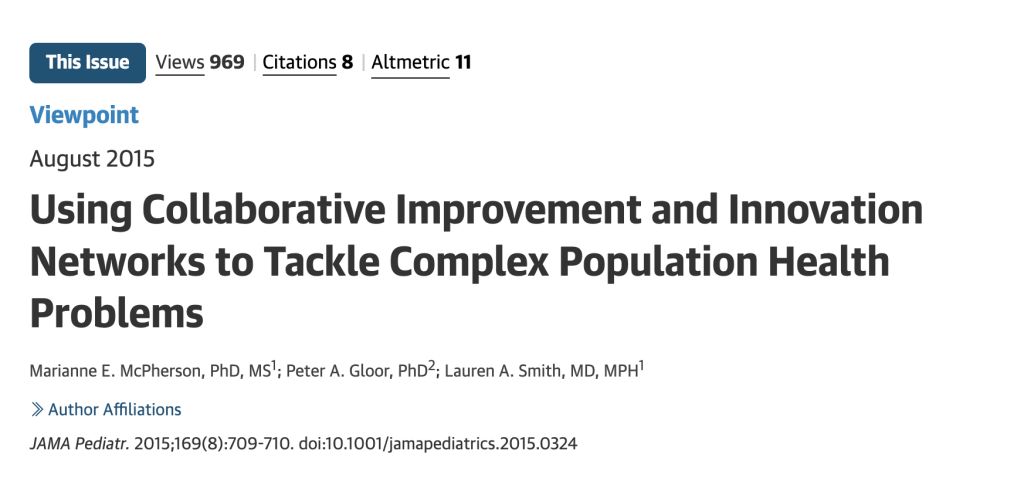Using Collaborative Improvement and Innovation Networks to Tackle Complex Population Health Problems
JAMA Pediatrics
Abstract
In medicine and public health, we often confront highly complex, persistent challenges that have both multiple causes and potential levers for action. In pediatrics, this is particularly true, as promoting children’s optimal health requires an attention to life course—outcomes decades removed from intervention—as well as to issues within and beyond health care such as housing, education, and safety. If we are to make headway on such challenges, we must be open to approaches that might facilitate success in novel ways. Collaborative Improvement and Innovation Networks (CoIINs) hold promise for public health and health professionals working to address complex problems related to children’s health by combining distinctive features of 3 key methods for change—collaborative learning, collaborative innovation networks, and quality improvement (QI). After reviewing the CoIIN model, we describe its key elements based on the CoIIN to Reduce Infant Mortality, or IM CoIIN, an initiative led by HRSA and the National Institute for Children’s Health Quality that illustrates how a CoIIN can be implemented to achieve results in a population health context.
